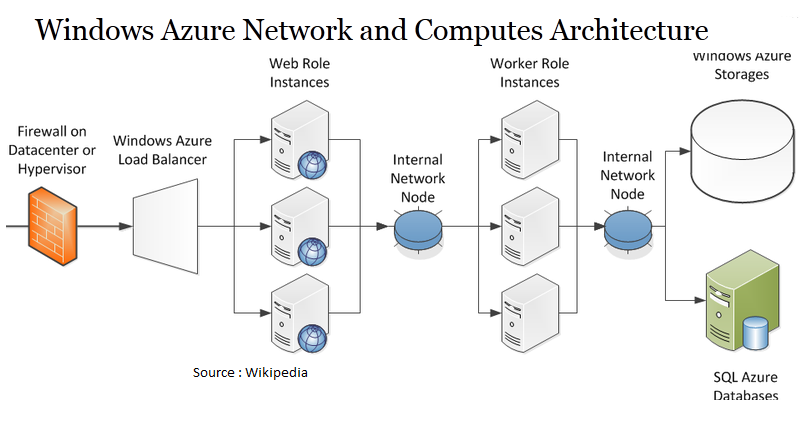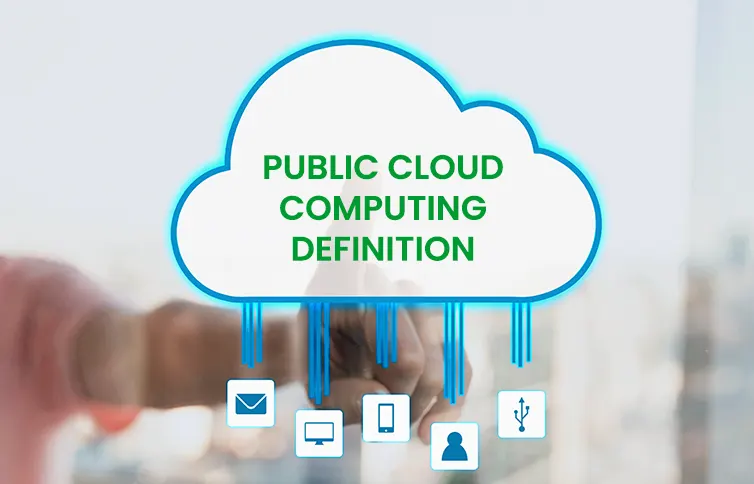Introduction: Navigating the VPS Hosting Landscape
In today’s digital landscape, selecting the right Virtual Private Server (VPS) hosting provider is a critical decision for IT professionals and businesses alike. With the increasing demand for flexible, scalable, and cost-effective hosting solutions, VPS hosting has emerged as a popular choice. However, with numerous providers flooding the market, how do you make an informed decision? This comprehensive guide will walk you through the essential factors to consider when choosing your VPS hosting provider, ensuring that you make a choice that aligns perfectly with your organization’s needs and goals.

Understanding VPS Hosting: The Basics
Before diving into the selection process, let’s briefly recap what VPS hosting entails. VPS hosting is a virtualized server environment that mimics a dedicated server within a shared hosting setting. It offers a middle ground between shared hosting and dedicated servers, providing enhanced performance, greater control, and improved security.
Key Features of VPS Hosting:
- Dedicated resources (CPU, RAM, storage)
- Root access and customization options
- Scalability and flexibility
- Improved security and isolation
Now that we’ve refreshed our understanding, let’s explore the crucial factors to consider when choosing your VPS hosting provider.
Performance and Reliability: The Foundation of Your Online Presence
When it comes to VPS hosting, performance and reliability should be at the top of your priority list. After all, your website or application’s uptime and speed directly impact user experience and, ultimately, your bottom line.
Evaluating Server Performance
Look for providers that offer:
- High-performance hardware: Modern CPUs, ample RAM, and fast SSD storage.
- Network infrastructure: Robust, redundant networks with multiple upstream providers.
- Uptime guarantees: Look for providers offering 99.9% or higher uptime SLAs.
Measuring Reliability
To assess a provider’s reliability:
- Check independent review sites and forums for user experiences.
- Ask for historical uptime data and performance metrics.
- Inquire about their disaster recovery and backup procedures.
“Remember, a provider’s past performance is often indicative of future reliability. Don’t hesitate to ask for concrete data and evidence of their track record.”
Scalability and Flexibility: Planning for Growth
As your business evolves, so will your hosting needs. Choosing a VPS provider that offers scalability and flexibility is crucial for long-term success.
Vertical Scaling
Look for providers that allow easy upgrades to:
- CPU cores
- RAM allocation
- Storage capacity
Horizontal Scaling
Consider providers offering:
- Load balancing options
- Ability to add multiple VPS instances
- Seamless integration with cloud services
Flexibility in OS and Software
Ensure the provider supports:
- A wide range of operating systems
- Custom software installations
- Container technologies like Docker
Security Measures: Protecting Your Digital Assets
In an era of increasing cyber threats, robust security measures are non-negotiable. Your VPS provider should offer comprehensive security features to safeguard your data and applications.
Essential Security Features to Look For:
- DDoS protection: Advanced mitigation techniques to counter distributed denial-of-service attacks.
- Firewalls: Both network-level and application-level firewalls.
- Regular security patches and updates: Automated or easily manageable update systems.
- SSL/TLS support: Free or easy integration of SSL certificates.
- Isolated virtualization: Ensuring your VPS is fully isolated from other users on the same physical server.
Data Center Security
Don’t overlook physical security. Inquire about:
- Data center certifications (e.g., ISO 27001, SOC 2)
- Physical access controls
- Environmental controls (fire suppression, climate control)
“Remember, security is not just about technology. It’s also about the provider’s policies, procedures, and responsiveness to emerging threats.”
Support and Management: Your Lifeline in Times of Need
Even with the most robust systems, issues can arise. The quality and responsiveness of your VPS provider’s support team can make all the difference in critical situations.
Evaluating Support Quality
If you are really seriously struggling on how to choose the best virtual private server provider Consider the following:
- Support channels: Phone, email, live chat, ticket system
- Response times: Look for guaranteed response times in the SLA
- 24/7 availability: Ensure support is available round the clock
- Technical expertise: The support team should be well-versed in server management and troubleshooting
Management Options
Depending on your team’s expertise, you might prefer:
- Fully managed services: The provider handles most server management tasks
- Semi-managed services: A balance between DIY and provider support
- Unmanaged services: Complete control for experienced teams
Pricing and Value: Balancing Cost and Features
While cost shouldn’t be the sole determining factor, it’s undoubtedly an important consideration. Look beyond the headline price and evaluate the overall value proposition.
Understanding Pricing Models
VPS providers typically offer:
- Monthly plans
- Annual plans (often at a discount)
- Pay-as-you-go options
Hidden Costs to Watch Out For
Be aware of potential additional charges for:
- Bandwidth overages
- IP addresses
- Backups
- Software licenses
Value-Added Services
Consider providers offering:
- Free migrations from other hosts
- Complimentary domain registration
- Regular backups included in the plan
- Content Delivery Network (CDN) integration
“The cheapest option isn’t always the best. Consider the total cost of ownership, including management time and potential downtime costs.”
Location and Latency: Optimizing for Your Audience
The physical location of your VPS can significantly impact performance, especially if you’re targeting a specific geographic audience.
Factors to Consider:
- Proximity to target audience: Closer servers generally mean lower latency
- Data sovereignty laws: Ensure compliance with local data storage regulations
- Multiple data center options: For redundancy and global load balancing
Content Delivery Networks (CDNs)
Some VPS providers offer integrated CDN services, which can help mitigate latency issues for global audiences. This can be a valuable feature if you’re serving content worldwide.
Reputation and Stability: Choosing a Reliable Partner
In the fast-paced world of website hosting uae provider stability is crucial. You don’t want to invest time and resources in setting up your VPS only to have the provider go out of business or be acquired.
Assessing Provider Reputation
- Look for established providers with a proven track record
- Check customer reviews and testimonials
- Research the company’s financial stability and backing
Industry Recognition
Consider providers that have received:
- Awards for service quality
- Positive mentions in industry publications
- Partnerships with reputable technology companies
Control Panel and Management Interface: Ease of Use Matters
The control panel and management interface are your primary tools for interacting with your VPS. An intuitive, feature-rich interface can significantly enhance your productivity and reduce management overhead.
Popular Control Panels
- cPanel/WHM: Widely used and feature-rich
- Plesk: User-friendly with good Windows support
- DirectAdmin: Lightweight and cost-effective
Custom Management Interfaces
Some providers offer proprietary management interfaces. Evaluate these based on:
- Ease of use
- Feature set
- Mobile accessibility
- API availability for automation
Customization and Root Access: Tailoring Your Environment
One of the key advantages of VPS hosting is the ability to customize your server environment. Ensure your chosen provider offers the level of control you need.
Key Customization Features:
- Root access: Full control over your server
- Choice of operating system: Support for various Linux distributions and Windows Server
- Software installation freedom: Ability to install and configure custom software
- Server resource allocation: Flexibility to adjust CPU, RAM, and storage as needed
Virtualization Technology
Different virtualization technologies can affect performance and flexibility. Common options include:
- KVM: Open-source, high performance
- Xen: Stable and widely used
- OpenVZ: Lightweight but with some limitations
“The level of customization you need depends on your technical expertise and specific requirements. Ensure the provider’s offerings align with your team’s capabilities and project needs.”
Backup and Disaster Recovery: Safeguarding Your Data
Data loss can be catastrophic for any business. A robust backup and disaster recovery strategy is essential when choosing your VPS hosting provider.
Backup Features to Look For:
- Automated daily backups
- User-initiated backups
- Off-site backup storage
- Easy restoration process
Disaster Recovery Options
Disaster recovery is one of the crucial services that you need to consider when you are learning on that how to choose the best virtual private server provider:
- Redundant systems and failover procedures
- Geographic redundancy (data centers in multiple locations)
- Recovery time objectives (RTO) and recovery point objectives (RPO)
Conclusion: Making Your Informed Decision
Choosing the right VPS hosting provider is a critical decision that can significantly impact your organization’s online presence and operations. By carefully considering the factors outlined in this guide – from performance and security to scalability and support – you’ll be well-equipped to make an informed choice.
Remember, the best VPS hosting provider for your organization is one that aligns with your specific needs, budget, and growth plans. Take the time to thoroughly research and compare options, and don’t hesitate to reach out to providers with specific questions or concerns.
As you embark on your VPS hosting journey, keep in mind that this is not just a short-term decision but a long-term partnership. Choose a provider that you can trust to support your organization’s growth and evolving needs in the dynamic world of IT infrastructure.
By following this comprehensive guide on how to choose the best virtual private server provider, you’re now ready to confidently navigate the VPS hosting landscape and select a provider that will serve as a solid foundation for your digital success.



